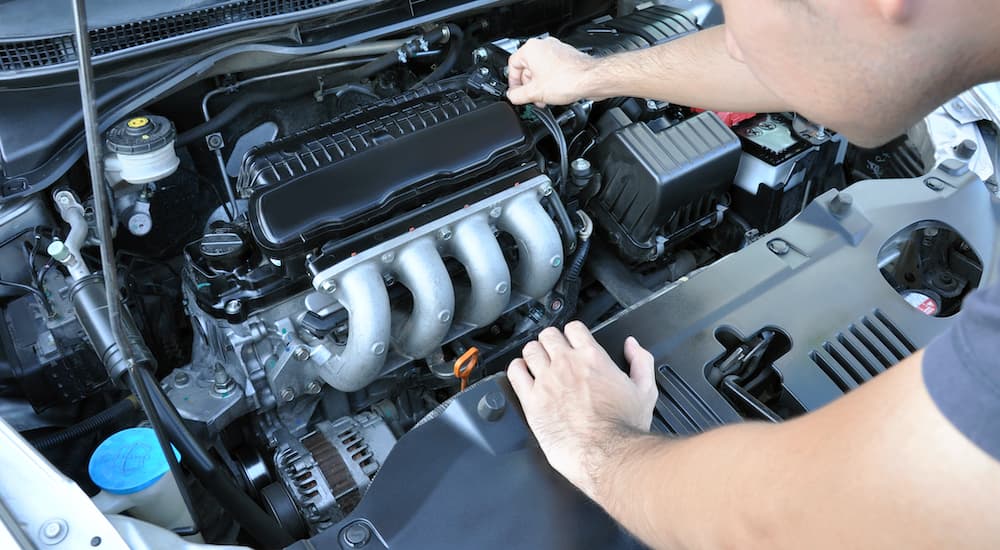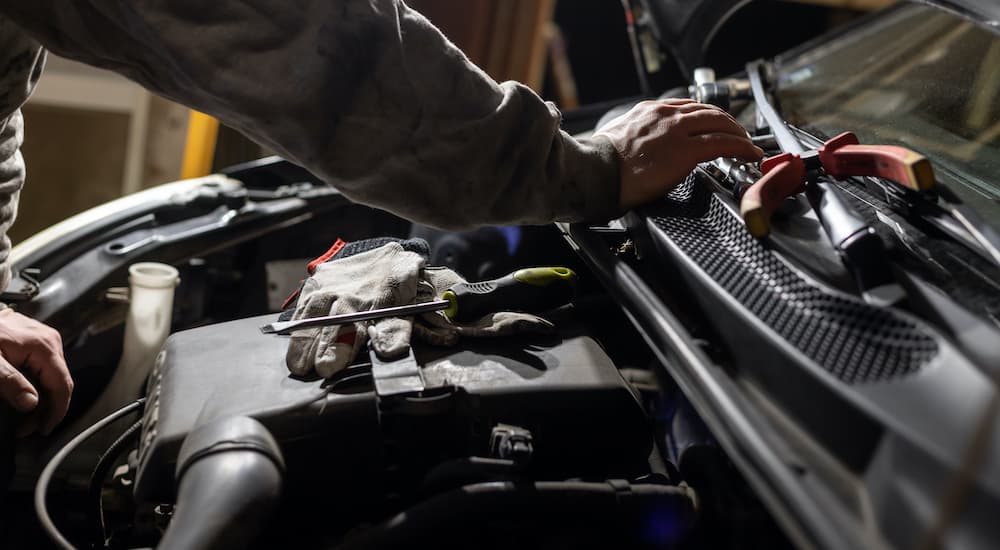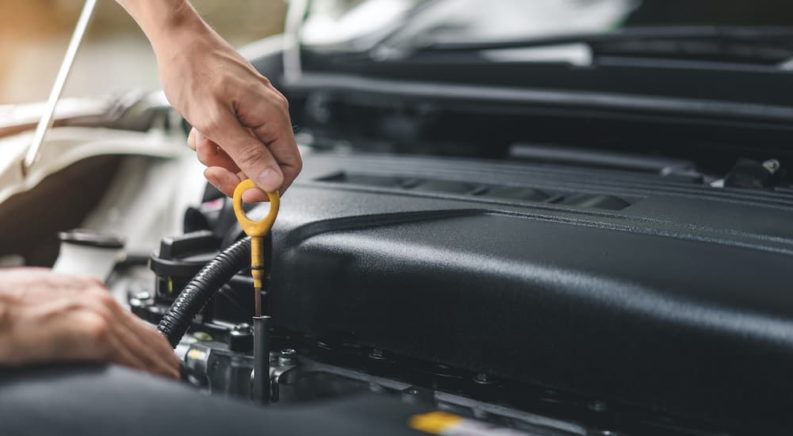You’ve got the keys to a shiny new car in the palm of your hand, and the last thing you’re thinking of is your vehicle’s maintenance schedule. Whether you just purchased a brand new car or you’ve found the ideal car on a used car lot near you, understanding maintenance intervals is imperative for the health and safety of your vehicle and those traveling around you. Approximately three million people are injured in vehicle-related accidents each year, just in the U.S. alone, and failing to maintain your vehicle can result in adding to those statistics. Cars these days are fairly easy to maintain and keep in tip-top condition, but it does take a little work from you in order to ensure your vehicle is operating at its best. Here’s all you need to know about proper vehicle maintenance and why it’s such an important responsibility for drivers everywhere.
The Importance of Vehicle Maintenance
In addition to keeping you and those around you safe, staying on top of your vehicle maintenance schedule comes with a host of benefits. Safety is one of the top benefits, of course, but you’re also making sure that your vehicle stays a reliable member of the family for years. In addressing normal maintenance needs, like oil changes, tire rotations, fluid replacement, and more, you’re able to ensure that your car is always driving at its best, reducing the risk of problems arising from neglect. On the other end of the spectrum, when tackling unplanned maintenance needs, which we’ll delve into a bit more later, you’re able to fix a problem before it gets worse. This helps you save money in the long run.
When your car is operating properly, everything just works better, providing you with an efficient ride. For example, by not taking your car in for regular oil changes, its engine will become more sluggish, less efficient, and will eventually suffer expensive damage. If you find that you’re heading to the pump more often, it may be time to take your vehicle in for service. Keeping up with your vehicle’s maintenance intervals also saves you time, as you’re able to avoid problems and the subsequent time it takes to remedy these problems.
Preventative maintenance is the best kind of maintenance because when you take care of your vehicle as best as you can, it helps enhance its performance, alleviating the need for costly repairs. And with so many dealerships offering convenient scheduling options, shuttle services, and comfortable waiting areas, it’s easy to find time to take your vehicle in for service. Part of being a responsible vehicle owner is taking care of your car so that it will continue to take care of you for miles.

Mileage-Based vs Time-Based Vehicle Maintenance
You may be wondering what some of the verbiage means in your vehicle’s manual, especially when it comes to when you should bring it in for scheduled maintenance. For instance, your vehicle may say that oil changes are recommended at 1-year/10,000-mile increments, but what does that mean? Well, you want to stick to whichever comes first. If you reach the one-year mark yet haven’t put 10,000 miles on your car, you should still schedule your oil change appointment, which may also encompass a variety of other routine checks. On the other hand, if you reach 10,000 miles before the one-year mark, you’ll want to schedule service at this point and then subsequently every one year or 10,000 miles thereafter.
Typical vehicle maintenance follows a 30-60-90 pattern, which in vehicle terms is equivalent to 30,000 miles, 60,000 miles, and 90,000 miles. This will be less about your routine oil changes and other consumable products, like tires and wiper blades, and more about which parts on your vehicle will need to be serviced or replaced at this point. Parts like brake pads and rotors, tires, and your vehicle’s battery will need to be checked out prior to a vehicle reaching 60,000 miles, while smaller items like filters will be checked prior to 30,000 miles. When your vehicle is cresting on 90,000 miles, you’ll want to get belts, sparkplugs, and other more significant items checked to see if they require repair or replacement.
Mileage-based service is typically dependent on the frequency of travel and will vary based on whether or not the vehicle is driven under normal circumstances or severe conditions. While it may seem counterintuitive, someone who constantly drives at high speeds on the highway is actually putting less stress on their car than someone who spends most of their time taking short trips around town. Maintenance will also depend on the terrain in which your vehicle is being driven on a regular basis. Do you frequently find yourself on rough or uneven terrain? You may need to schedule more regular service to ensure your engine, tires, and more are keeping up with these harsh conditions.
The great thing is that many modern vehicles have built-in maintenance alerts that will let you know when certain services are needed. A simple icon on the dash can tell you that it’s time to bring your vehicle into the dealership or a trusted mechanic for maintenance. And speaking of mechanics, it’s always advised to schedule service with a reputable facility, ideally, one that carries your vehicle’s parts in stock and knows exactly how to work on your vehicle. This will also alleviate problems arising from a lack of experience with your vehicle, which can cause unnecessary damage.
Scheduled vs Unscheduled Vehicle Maintenance
Owning a vehicle means that at one time or another, you’re going to be at your local service center for routine maintenance or the occasional repair, both of which fall into the category of maintenance. Maintaining your vehicle encompasses many different types of service, some planned and some unplanned. Even when you don’t expect a problem to arise, the key is to take care of it before it becomes harmful to your vehicle, you, or anyone around you. That’s why addressing any type of issue as soon as possible is highly recommended.
When maintenance is scheduled, it means that the item in question has a set service life and is designed to be replaced at a specific time. Although that sounds pretty self-explanatory, it tends to get missed by a lot of drivers. Planned maintenance intervals, like those we mentioned above, are recommended by the manufacturer to ensure that you’re keeping your vehicle in peak condition through preventative services. Checking timing belts, oil filters, tires, and more can help your mechanic get a handle on how your car is operating, and if something is amiss, they’ll be able to diagnose the problem and provide a solution.
Unscheduled maintenance occurs when something fails unexpectedly. Perhaps your vehicle that is only a few years old has started developing problems with steering, which may warrant a check-up of its steering system, or maybe your brakes are starting to give you trouble, which may mean that you need a repair or a replacement. You may need repairs along the way that you hadn’t planned for, but by keeping up with routine maintenance, you’ll be able to have a professional at your service to help detect what’s wrong and fix it accordingly.

Keeping Up with Vehicle Maintenance
Whether you’re in need of a routine oil change or something is amiss with your vehicle, and you need to have the problem diagnosed, keeping up with your vehicle’s maintenance is imperative. After all, you have an important responsibility to keep yourself, your passengers, and everyone around you safe, and if you neglect your vehicle, you inadvertently place them in harm’s way. Stick with your vehicle’s regularly scheduled services, and be sure to address anything that may strike you as out of the ordinary as soon as you can so that you’ll be able to enjoy your vehicle for years.

